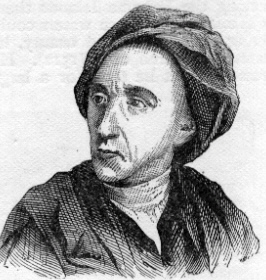Related Research Articles

Alexander Pope was an English poet, translator, and satirist of the Enlightenment era who is considered one of the most prominent English poets of the early 18th century. An exponent of Augustan literature, Pope is best known for his satirical and discursive poetry including The Rape of the Lock, The Dunciad, and An Essay on Criticism, and for his translations of Homer.

John Gay was an English poet and dramatist and member of the Scriblerus Club. He is best remembered for The Beggar's Opera (1728), a ballad opera. The characters, including Captain Macheath and Polly Peachum, became household names.

This article contains information about the literary events and publications of 1712.
This article contains information about the literary events and publications of 1716.
This article is a summary of the major literary events and publications of 1720.
This article contains information about the literary events and publications of 1729.
This article contains information about the literary events and publications of 1733.
This article contains information about the literary events and publications of 1735.
This article contains information about the literary events and publications of 1743.
This article contains information about the literary events and publications of 1708.
This article contains information about the literary events and publications of 1709.
In Latin literature, Augustan poetry is the poetry that flourished during the reign of Caesar Augustus as Emperor of Rome, most notably including the works of Virgil, Horace, and Ovid. In English literature, Augustan poetry is a branch of Augustan literature, and refers to the poetry of the 18th century, specifically the first half of the century. The term comes most originally from a term that George I had used for himself. He saw himself as an Augustus. Therefore, the British poets picked up that term as a way of referring to their endeavours, for it fit in another respect: 18th-century English poetry was political, satirical, and marked by the central philosophical problem of whether the individual or society took precedence as the subject of the verse.

The Dunciad is a landmark, mock-heroic, narrative poem by Alexander Pope published in three different versions at different times from 1728 to 1743. The poem celebrates a goddess, Dulness, and the progress of her chosen agents as they bring decay, imbecility, and tastelessness to the Kingdom of Great Britain.

Augustan literature is a style of British literature produced during the reigns of Queen Anne, King George I, and George II in the first half of the 18th century and ending in the 1740s, with the deaths of Alexander Pope and Jonathan Swift, in 1744 and 1745, respectively. It was a literary epoch that featured the rapid development of the novel, an explosion in satire, the mutation of drama from political satire into melodrama and an evolution toward poetry of personal exploration. In philosophy, it was an age increasingly dominated by empiricism, while in the writings of political economy, it marked the evolution of mercantilism as a formal philosophy, the development of capitalism and the triumph of trade.
Leonard Welsted was an English poet and "dunce" in Alexander Pope's writings. Welsted was an accomplished writer who composed in a relaxed, light hearted vein. He was associated with Whig party political figures in his later years, but he was tory earlier, and, in the age of patronage, this seems to have been more out of financial need than anything else.
Nationality words link to articles with information on the nation's poetry or literature.
Nationality words link to articles with information on the nation's poetry or literature.
Nationality words link to articles with information on the nation's poetry or literature.
Events from the year 1728 in Great Britain.
Thomas Cooke, often called "Hesiod" Cooke, was an active English translator and author who ran afoul of Alexander Pope and was mentioned as one of the "dunces" in Pope's Dunciad. His father was an innkeeper. He was educated at Felsted. Cooke arrived in London in 1722 and began working as a writer for the Whig causes. He associated with Thomas Tickell, Ambrose Philips, Leonard Welsted, Richard Steele, and John Dennis. Cooke is the source of one of the primary biographies of John Dennis, which he wrote in Latin.
References
- ↑ Rawson, Claude (1992-08-06). "Stewed, roasted, baked or boiled". London Review of Books . Retrieved 18 July 2017.
- ↑ Nehemia Levtzion; Randall Lee Pouwels (2000). The History of Islam in Africa. Ohio University Press. p. 429. ISBN 978-0-85255-782-2.
- ↑ Joel Serrão; António Henrique R. de Oliveira Marques (1987). Nova história de Portugal (in Portuguese). Editorial Presença. p. 534. ISBN 9789722327879.
- ↑ Day, Gary; Lynch, Jack (9 March 2015). The Encyclopedia of British Literature, 3 Volume Set: 1660 - 1789. John Wiley & Sons. p. 950. ISBN 978-1-4443-3020-5.
- ↑ Grun, Bernard (1991) [1946]. The Timetables of History. 3rd ed., p. 328.
- ↑ Gareth Vaughan Bennett (1957). White Kennett, 1660-1728, Bishop of Peterborough: Study in the Political and Ecclesiastical History of the Early Eighteenth Century. Church Historical Society. p. 244.